![]()
Resurrection "comes about through Yahweh's ruach"
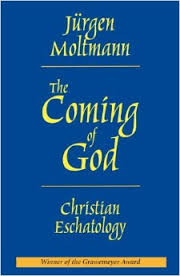
"Israelite faith in God is determined by the Exodus experience. God is called `the Lord' because he led the people out of slavery to freedom. Analogously, God was expected to act as deliverer from the exigency of death, as we see from the psalms of lament and thanksgiving.” Similar experiences led people to go a step further, and ask: 'Dost thou work wonders for the dead?' (Ps. 88.10). Or: `If a man die, shall he live again?' (Job 14.14). For Israel as a whole expectations such as these also spring from remembrance of the Exodus. Ezekiel 37 puts it with particular force: `Can these bones live?' As answer, the life-giving breath of God blows over the field of the dead: `Behold, I will open your graves ... I will put my Spirit within you, and you shall live again, and I will place you in your own land, and you shall know that I am "The Lord"' (37.12, 14). The passage is undoubtedly talking about a resurrection in this life. It comes about through Yahweh's ruach, and in this happening `the Lord' manifests himself. `The Lord' is the name of Israel's liberating God.”
"The immortality of the soul is an opinion - the resurrection of the dead is a hope. The first is a trust in something immortal in the human being, the second is a trust in the God who calls into being the things that are not, and makes the dead live. In trust in the immortal soul we accept death, and in a sense anticipate it. In trust in the life-creating God we await the conquest of death -'death is swallowed up in victory' (I Cor. 15.54) -and an eternal life in which `death shall be no more' (Rev. 21.4). The immortal soul may welcome death as a friend, because death releases it from the earthly body; but for the resurrection hope, death is `the last enemy' (I Cor. 15.26) of the living God and the creations of his love.
Just as death is not only the end, but an event belonging to the whole of life, so the resurrection too must not be reduced to `a life after death'. The resurrection is also an event belonging to the whole of life. It is the reason for a full acceptance of life here, and means that human beings can give themselves up to the whole of life without any reservation. What is hoped for there, after death, as `the raising of the dead', means here the life lived in love. `We know that we have passed out of death into life, because we love the brothers and sisters' (I John 3.14). True life means here love and there glory. The resurrection hope is not a speculation about some far off, posthumous condition. Only the love which passionately affirms life understands the relevance of this hope, because it is through that that this love is liberated from the fear of death and the fear of losing its own self. The resurrection hope makes people ready to live their lives in love wholly, and to say a full and entire Yes to a life that leads to death. It does not withdraw the human soul from bodily, sensory life; it ensouls this life with unending joy. In expectation of the resurrection of the dead, the person who hopes casts away the soul's protective cloak in which the wounded heart has wrapped itself, so as not to let anything more come near it. We throw ourselves into this life and empty ourselves into the deadly realm of non-identity by virtue of the hope that God will find us in death, and will raise us and gather us.
"The immortality of the soul is an opinion - the resurrection of the dead is a hope. The first is a trust in something immortal in the human being, the second is a trust in the God who calls into being the things that are not, and makes the dead live. In trust in the immortal soul we accept death, and in a sense anticipate it. In trust in the life-creating God we await the conquest of death -'death is swallowed up in victory' (I Cor. 15.54) -and an eternal life in which `death shall be no more' (Rev. 21.4). The immortal soul may welcome death as a friend, because death releases it from the earthly body; but for the resurrection hope, death is `the last enemy' (I Cor. 15.26) of the living God and the creations of his love.
Hope for `the resurrection of the body' permits no disdain and debasement of bodily life and sensory experiences; it affirms them profoundly, and gives greatest honour to `the flesh', which people have made something to be despised. In order to describe the relation between commitment to life here and the resurrection of the dead there, Paul uses the image of the grain of wheat: `It is sown perishable, it is raised imperishable. It is sown in dishonour, it is raised in glory. It is sown in weakness, it is raised in power. It is sown a physical body, it is raised a spiritual body' (I Cor. 15.42-44, cf. also John 12.24; Matt. 10.39; Luke 17.33).
"The immortality of the soul is an opinion - the resurrection of the dead is a hope. The first is a trust in something immortal in the human being, the second is a trust in the God who calls into being the things that are not, and makes the dead live. In trust in the immortal soul we accept death, and in a sense anticipate it. In trust in the life-creating God we await the conquest of death -'death is swallowed up in victory' (I Cor. 15.54) -and an eternal life in which `death shall be no more' (Rev. 21.4). The immortal soul may welcome death as a friend, because death releases it from the earthly body; but for the resurrection hope, death is `the last enemy' (I Cor. 15.26) of the living God and the creations of his love.
In the dialectic of the resurrection, the soul doesn't have to withdraw itself from the body. On the contrary, it will he embodied and become flesh. It doesn't have to deny the emotions. It will make them living in love. It doesn't have to anticipate death in the memento mori. It will overcome death in the midst of life, through love. In this resurrection dialectic, human beings don't have to try to cling to their identity through constant unity with themselves, but will empty themselves into non-identity, knowing that from this self-emptying they will be brought back to themselves again for eternity. Human beings find themselves, not by guarding themselves and saving themselves up, but through a self-emptying into what is other and alien. Only people who go out of themselves arrive at themselves. Life is not `an experiment'. The resurrection hope, at least, does not leave life here in `a state of suspension'. It permits no `deferred life'. For the love of life which it makes possible, everything is singular, non-recurring and definitive. The transcendence of hope is lived in the incarnation of love. I shall live wholly here, and die wholly, and rise wholly there.
Following this link between love for life and the resurrection hope, we shall now look at the various ideas about resurrection. There have always been interactions between the great religions on earth. But when ideas were taken over they were integrated into the complex of the religion that adopted them. So in the Old Testament we find a number of different notions about resurrection taken over from other religions, from Egypt and Babylon. To some extent these are integrated into the Israelite belief in God, to some extent they are simply added on to it.
Israelite faith in God is determined by the Exodus experience. God is called `the Lord' because he led the people out of slavery to freedom. Analogously, God was expected to act as deliverer from the exigency of death, as we see from the psalms of lament and thanksgiving.” Similar experiences led people to go a step further, and ask: 'Dost thou work wonders for the dead?' (Ps. 88.10). Or: `If a man die, shall he live again?' (Job 14.14). For Israel as a whole expectations such as these also spring from remembrance of the Exodus. Ezekiel 37 puts it with particular force: `Can these bones live?' As answer, the life-giving breath of God blows over the field of the dead: `Behold, I will open your graves ... I will put my Spirit within you, and you shall live again, and I will place you in your own land, and you shall know that I am "The Lord"' (37.12, 14). The passage is undoubtedly talking about a resurrection in this life. It comes about through Yahweh's ruach, and in this happening `the Lord' manifests himself. `The Lord' is the name of Israel's liberating God.
It is only in Israelite eschatology that expectations of the Lord of life reach out for the first time beyond the frontier of death to a raising of the dead to a life that is eternal, and consequently to the annihilation of death itself.
The Little Apocalypse of Isaiah (chapters 24-26) says about Israel's dead: `But thy dead shall live, their bodies shall rise. 0 dwellers in the dust, awake and sing for joy!' (26.19). From the great banquet of the nations on Zion the promise goes out to the whole human race: `He will swallow up death for ever, and ... will wipe away the tears from all faces ...' (25.8). Here the resurrection is an unequivocal salvific hope.
In the Son of man apocalyptic in Daniel 12.2 it is a different matter: `Many of those who sleep in the dust of the earth shall awake, some to everlasting life, and some to shame and everlasting contempt.' Here the idea of God's universal final judgment is in the forefront. Through his judgment God's righteousness and justice will be made to prevail in all things and among all people. The dead must rise so that they can take responsibility; they must rise body and soul so that they can take responsibility for everything that they have done in body and soul, and can receive eternal life or eternal shame according to their deeds. We find similar ideas about the judgment of the dead in Egypt.
These two ideas about resurrection can be found side by side in Israelite tradition, unharmonized.
In the books of Maccabees, the resurrection is thought of in order that the righteous who resist, and the fallen martyrs, can participate in Israel's End-time salvation. In the specifically apocalyptic literature the concept of the universal Last judgment is developed further. Here resurrection is not a hope for salvation, but a two-edged expectation, because one does not know to which side one will belong. The idea of resurrection is used to show that everyone will be called to account on judgment Day. If one takes this seriously, one does not know whether a resurrection is desirable at all, either for oneself or for other people. What is at the centre is not resurrection but the universal victory of God's righteousness and justice. Here resurrection is merely an auxiliary concept that makes it possible to think of the final judgment diachronically, as applying to all generations.
In both cases, resurrection presupposes the death of body and soul, and affects the complete person - that is to say, it is always thought of in physical terms. Is faith in the resurrection an essential part of Israelite faith in God? In the second of the Eighteen Benedictions (the Amidah), the God of Israel is praised daily as `Thou who revivests the dead', while the last of the Thirteen Principles of the Faith (which go back to Maimonides) affirms: `I believe with perfect faith that there will be a resurrection of the dead at the time when it shall please the Creator, blessed be his name ...'
Christian faith in God is shaped by the experience of the dying and death of Christ, and by the appearances of the Christ who was raised.36 Resurrection is not a return to this, or another, mortal life. It is entry into a life that is eternal. Christ's resurrection is therefore not a historical event; it is an eschatological happening to the crucified Christ and took place `once for all' (Rom 6.10). In the first commandment given to Israel, God identifies himself as the One who brought Israel our of Egypt; in analogy, God according to the New Testament is the One `who raised Jesus from the dead' (Rom. 10.9). The God who raises the dead is the God who calls into existence the things that do not exist, and is faithful to his promise in history (Rom. 4.17). If Christ has been raised from the dead, then he takes on proleptic and representative significance for all the dead. He is `the leader of life' (Acts 3.15), `the first to rise from the dead' (Acts 26.23), `the first-born from the dead' (Col. 1.18). He is therefore `the resurrection and the life' in person (John 11.25). The process of the resurrection of the dead has begun in him, is continued in `the Spirit, the giver of life', and will be completed in the raising of those who are his, and of all the dead. The eschatological question about the future of the dead is answered christologically. And yet even in the New Testament ideas about the resurrection are unharmonized: in community with the risen Christ, this hope is a living hope for eternal life; in expectation of the judgment of the living and the dead it remains an ambivalent and uncertain expectation, with fear and trembling.
Like the raising of the dead Christ by God through his life-giving Spirit, the resurrection of the dead is also expected as a physical happening touching the whole person, namely as a `giving life to mortal bodies' (Rom. 8.11). `The raising of the dead' describes the event personally - as it affects the persons involved. The annihilation of death (I Cor. 15.26; Rev. 21.4) describes the cosmic side of that event. The two sides necessarily belong together: there is no resurrection of the dead without the new earth in which death will be no more. The very expression `the resurrection of the flesh' (resurrectio carnis) reaches out beyond the human dead, according to Old Testament language; for the Old Testament formula `all flesh' or `no flesh' (Gen. 9.11; Ps. 65.3; 145.21; Joel 2.28 and frequently elsewhere) does not just mean human beings in their physical constitution; it means animals too - that is, `all the living'. It is true that the patristic church's acknowledgment of `the resurrection of the flesh' (or body) was always reduced to human beings alone. But the wording of the acknowledgment leaves it open for `the resurrection of all the living'. `Not only the present body but its matter, the flesh, is to partake in the future resurrection.''' With this, the `identity' of the material body is maintained with anti-spiritualistic rigour.
Eternal life consequently embraces this person, and this person wholly, body and soul; and, beyond this person, it applies to all the living, so that in that future world the creation that `groans' under transience (Rom. 8.19-21) will also be delivered, because there will be no more death. Hope for the resurrection of the dead is therefore only the beginning of a hope for a cosmic new creation of all things and conditions. It is not exhausted by personal eschatology. On the contrary, every personal eschatology that begins with this hope is constrained to press forward in ever-widening circles to cosmic eschatology.
If the dead are raised to `eternal life', what can this eternal life mean? Is it another life, following this temporal one, or is this temporal life going to be different? If it were another life after this temporal one, then the expression `raising' would be wrong, and death would be the birthday of that other life, so to speak. But the raising of the dead means that `this mortal life will put on immortality' (I Cor. 15.54). So something happens to this whole mortal life. Will this life be `immortalized', as obituary notices sometimes say? If that meant that this life from birth to death is recorded as if on a video, and stored up in the heaven of eternity, that would be anything but a joyful prospect: immortalized with all the terrible experiences, faults, failings and sicknesses? How would we imagine the immortalizing of a severely disabled human life, or the immortalizing of a child who died young?
The expressions which come closest to `raising' or `resurrection' in the New Testament are transformation (I Cor. 15.52) and transfiguration (Phil. 3.21). Then `raising' means that a person finds healing, reconciliation and completion.
To be raised to eternal life means that nothing has ever been lost for God - not the pains of this life, and not its moments of happiness. Men and women will find again with God not only the final moment, but their whole history - but as the reconciled, the rectified and healed and completed history of their whole lives. What is experienced in this life as grace will be consummated in glory.
Death is the power of separation, both in time as the stream of transience, materially as the disintegration of the person's living Gestalt or configuration, and socially as isolation and loneliness. The raising to eternal life, conversely, is the power to unite - in time, as the gathering of all temporal moments into the eternal present; materially, as healing for life's configuration in its wholeness; and socially, as a gathering into new community in the eternal love. Because here we lead social lives, there is no `individual' resurrection, but always only a social resurrection into a new community. Otherwise `eternal life' could not be love. Eternal life is the final healing of this life into the completed wholeness for which it is destined.
Jurgen Moltmann. The Coming of God: Christian Eschatology (Kindle Locations 1028-1114). Kindle Edition.
NOTE: If this page was accessed during a web search you may wish to browse this site where the above topic or related issues are discussed in detail to promote peace, religious harmony, and spiritual development of humanity based on the advent and message of the promised Spirit-Paraclete who—already manifested in various forms over the ages as His Spirit (Shakti)—now brings eschatological closure and commences the Resurrection:
The Paraclete Shri Mataji Bearing Good News Of Jesus' Kingdom Of God, Resurrection And Last Judgment In Age That Has ComeThe Resurrection was expressly taught by Christ (John 5:28-29; 6:39-40; 11:25; Luke 14:14) and is the central eschatological doctrine of Judaism, Christianity and Islam

Shri Mataji Nirmala Devi was
Christian by birth, Hindu by
marriage, and Paraclete by duty.
She spent four decades of 3000
worldwide speaking events
delivering the Good News.
"The Paraclete represents direct,
intimate divine intervention,
supporting and teaching
believers and challenging the
world, as Jesus did.” "The
Paraclete cannot be received by
the world (14:17), as Jesus
himself was rejected (5:43; 12:48;
15:18-20). The world which does
not know the Paraclete (14:17)
did not know Jesus (16:13).”
(Stevick 2011, 290-92)
"The teaching of the Paraclete, as
the continuation of Jesus'
teaching, must also be understood
as the fulfillment of the promise
of eschatological divine
instruction.” (Witmer 2008, 208)
The Messiah/Paraclete Shri Mataji
"Tell all the nations and tell all the people all over the Great Message that the Time of Resurrection is here now, at this time, and that you are capable of doing it.”
The Messiah/Paraclete Shri Mataji
Cowley Manor Seminar, UK—31 July 1982
"This is the transformation that has worked, of which Christ has talked, Mohammed Sahib has talked, everybody has talked about this particular time when people will get transformed.”
The Messiah/Paraclete Shri Mataji
Chistmas Puja, India—25 Dec. 1997
"The Resurrection of Christ has to now be collective resurrection. This is what is Mahayoga—has to be the collective resurrection.”
The Messiah/Paraclete Shri Mataji
Easter Puja, London, UK—11 April 1982
"Announce it to all the seekers of truth, to all the nations of the world, so that nobody misses the blessings of the Divine to achieve their meaning, their absolute, their spirit.” The Messiah/Paraclete Shri Mataji
"The main thing that one has to understand is that the time has come for you to get all that is promised in the scriptures, not only in the Bible but all the scriptures of the world.” The Messiah/Paraclete Shri Mataji
Apokalypsis: The fulfillment of eschatological instruction by the Paraclete in the Age to Come promised by Jesus at the Last Supper
An apocalypse (Greek: apokalypsis meaning “an uncovering”) is in religious contexts knowledge or revelation, a disclosure of something hidden, “a vision of heavenly secrets that can make sense of earthly realities.” (Ehrman 2014, 59)
“An apocalypse (Ancient Greek: apokalypsis ... literally meaning "an uncovering") is a disclosure or revelation of great knowledge. In religious and occult concepts, an apocalypse usually discloses something very important that was hidden or provides what Bart Ehrman has termed, "A vision of heavenly secrets that can make sense of earthly realities". Historically, the term has a heavy religious connotation as commonly seen in the prophetic revelations of eschatology obtained through dreams or spiritual visions.” Wikipedia 2021-01-09
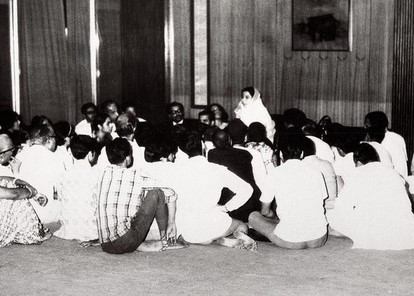
Total number of recorded talks 3058: Public Programs 1178, Pujas 651, and other (private conversations) 1249
“The Paraclete will come (15:26; 16:7, 8, 13) as Jesus has come into the world (5:43; 16:28; 18:37)... The Paraclete will take the things of Christ (the things that are mine, ek tou emou) and declare them (16:14-15). Bishop Fison describes the humility of the Spirit, 'The true Holy Spirit of God does not advertise Herself: She effaces Herself and advertises Jesus.' ...
It is by the outgoing activity of the Spirit that the divine life communicates itself in and to the creation. The Spirit is God-in-relations. The Paraclete is the divine self-expression which will be and abide with you, and be in you (14:16-17). The Spirit's work is described in terms of utterance: teach you, didasko (14:26), remind you, hypomimnesko (14:26), testify, martyro (15:26), prove wrong, elencho (16:8), guide into truth, hodego (16:13), speak, laleo (16:13, twice), declare, anangello (16:13, 14, 15). The johannine terms describe verbal actions which intend a response in others who will receive (lambano), see (theoreo), or know (ginosko) the Spirit. Such speech-terms link the Spirit with the divine Word. The Spirit's initiatives imply God's personal engagement with humanity. The Spirit comes to be with others; the teaching Spirit implies a community of learners; forgetful persons need a prompter to remind them; one testifies expecting heed to be paid; one speaks and declares in order to be heard. The articulate Spirit is the correlative of the listening, Spirit-informed community.
The final Paraclete passage closes with a threefold repetition of the verb she will declare (anangello), 16:13-15. The Spirit will declare the things that are to come (v.13), and she will declare what is Christ's (vv. 14, 15). The things of Christ are a message that must be heralded...
The intention of the Spirit of truth is the restoration of an alienated, deceived humanity... The teaching role of the Paraclete tends to be remembered as a major emphasis of the Farewell Discourses, yet only 14:26 says She will teach you all things. (Teaching is, however, implied when 16:13-15 says that the Spirit will guide you into all truth, and will speak and declare.) Franz Mussner remarks that the word used in 14:26, didaskein, "means literally 'teach, instruct,' but in John it nearly always means to reveal.” (Stevick 2011, 292-7)
The Holy Spirit as feminine: Early Christian testimonies and their interpretation,
Johannes van Oort, Radboud University, Nijmegen, The Netherlands
Department of Church History and Church Polity, Faculty of Theology, University of Pretoria, South Africa
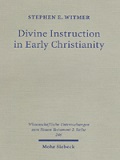
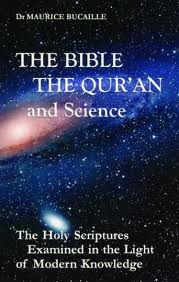
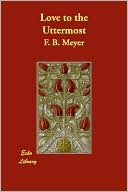
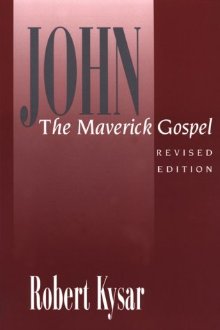
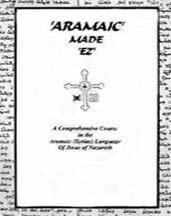
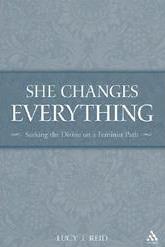
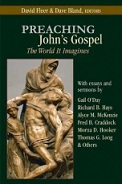
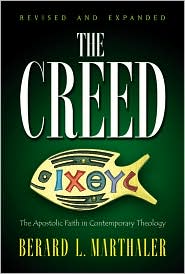
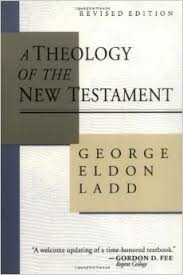
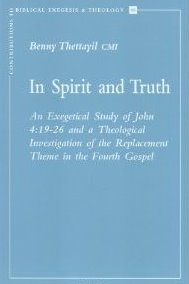

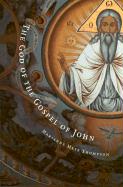
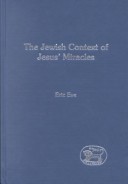
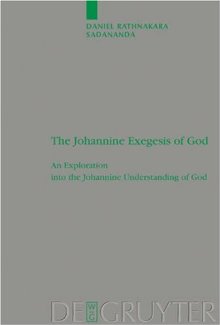
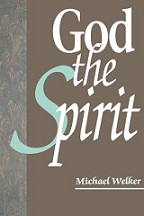
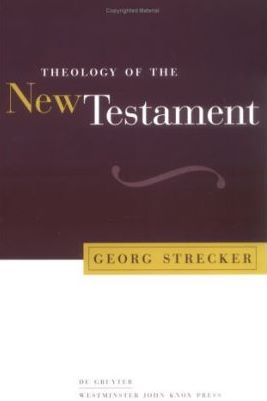
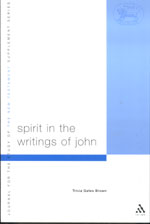
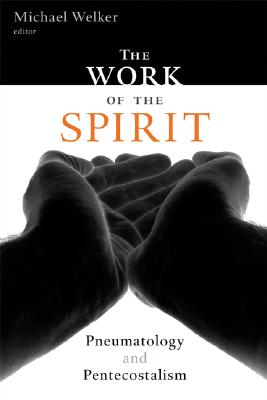
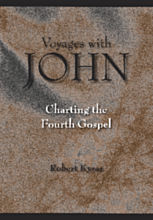
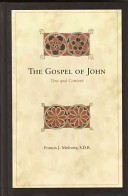
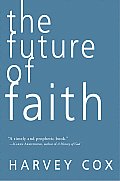
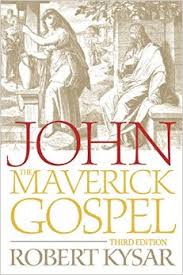
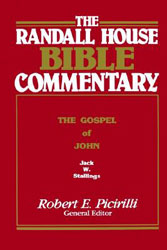
 “The teaching of the Paraclete, as the continuation of Jesus' teaching, must also be understood as the fulfillment of the promise of eschatological divine instruction.”
“The teaching of the Paraclete, as the continuation of Jesus' teaching, must also be understood as the fulfillment of the promise of eschatological divine instruction.”Stephen E. Witmer, Divine instruction in Early Christianity
“Jesus therefore predicts that God will later send a human being to Earth to take up the role defined by John .i.e. to be a prophet who hears God's words and repeats his message to man.”
M. Bucaille, The Bible, the Qur'n, and Science
“And when Jesus foreannounced another Comforter, He must have intended a Person as distinct and helpful as He had been.”
F. B. Meyer, Love to the Utmost
“The Paraclete has a twofold function: to communicate Christ to believers and, to put the world on trial.”
Robert Kysar, John The Meverick Gospel
“But She—the Spirit, the Paraclete...—will teach you everything.”
Danny Mahar, Aramaic Made EZ)
“Grammatical nonsense but evidence of the theological desire to defeminize the Divine.”
Lucy Reid, She Changes Everything
“The functions of the Paraclete spelled out in verses 13-15... are all acts of open and bold speaking in the highest degree.”
David Fleer, Preaching John's Gospel
“The reaction of the world to the Paraclete will be much the same as the world's reaction was to Jesus.”
Berard L. Marthaler, The Creed: The Apostolic Faith in Contemporary Theology
Bultmann calls the “coming of the Redeemer an 'eschatological event,' 'the turning-point of the ages.”
G. Ladd, A Theology of the New Testament
“The Paraclete equated with the Holy Spirit, is the only mediator of the word of the exalted Christ.”
Benny Thettayil, In Spirit and Truth
“The divine Paraclete, and no lessor agency, must show the world how wrong it was about him who was in the right.”
Daniel B. Stevick , Jesus and His Own: A Commentary on John 13-17
Stephen Smalley asserts that “The Spirit-Paraclete ... in John's Gospel is understood as personal, indeed, as a person.”
Marianne Thompson, The God of the Gospel of John
“The Messiah will come and the great age of salvation will dawn (for the pious).”
Eric Eve, The Jewish context of Jesus' Miracles
“The remembrance is to relive and re-enact the Christ event, to bring about new eschatological decision in time and space.”
Daniel Rathnakara Sadananda, The Johannine Exegesis of God
“The Spirit acts in such an international situation as the revealer of 'judgment' on the powers that rule the world.”
Michael Welker, God the Spirit
The Paraclete's “Appearance means that sin, righteousness, and judgment will be revealed.”
Georg Strecker, Theology of the New Testament
“While the Spirit-Paraclete is the true broker, the brokers they rely on are impostors.”
T. G. Brown, Spirit in the writings of John
“The pneumatological activity ... of the Paraclete ... may most helpfully be considered in terms of the salvific working of the hidden Spirit.”
Michael Welker, The work of the Spirit
“The pneuma is the peculiar power by which the word becomes the words of eternal life.”
Robert Kysar, Voyages with John
“The gift of peace, therefore, is intimately associated with the gift of the Spirit-Paraclete.”
Francis J. Moloney, The Gospel of John
“This utopian hope, even when modestly expressed, links Jesus and the prophets to a much wider history of human longing.”
Harvey Cox, The Future of Faith
“Because of the presence of the Paraclete in the life of the believer, the blessings of the end-times—the eschaton—are already present.”
Robert Kysar, John
“They are going, by the Holy Spirit's power, to be part of the greatest miracle of all, bringing men to salvation.”
R. Picirilli, The Randall House Bible Commentary
“The Kingdom of God stands as a comprehensive term for all that the messianic salvation included... is something to be sought here and now (Mt. 6:33) and to be received as children receive a gift (Mk. 10:15 = Lk. 18:16-17).”
G. Ladd, A Theology of the New Testament
Disclaimer: Our material may be copied, printed and distributed by referring to this site. This site also contains copyrighted material the use of which has not always been specifically authorized by the copyright owner. We are making such material available to our readers under the education and research provisions of "fair use" in an effort to advance freedom of inquiry for a better understanding of religious, spiritual and inter-faith issues. The material on this site is distributed without profit. If you wish to use copyrighted material for purposes other than “fair use” you must request permission from the copyright owner.